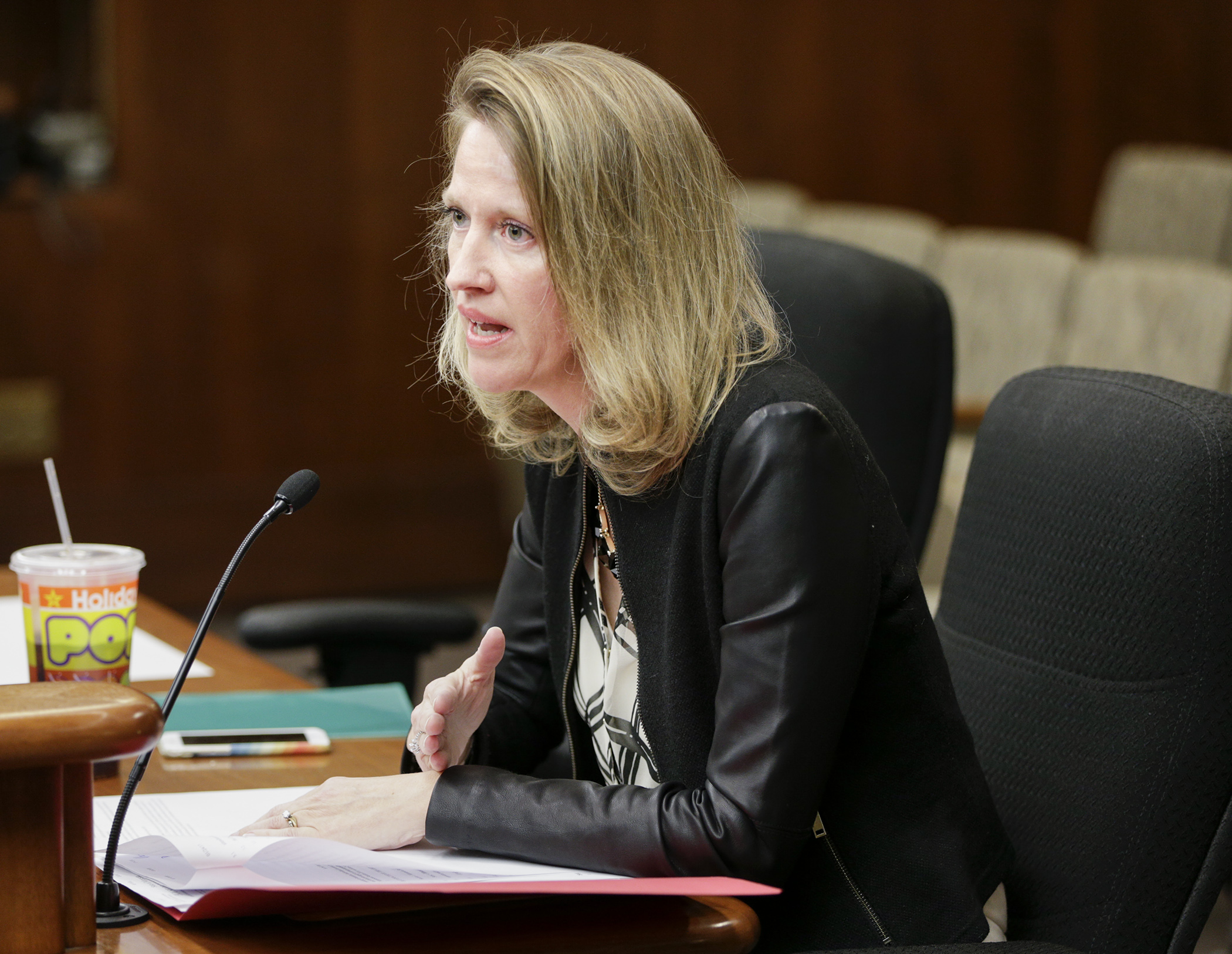Pre-K tax break? Incentives, deductions for expenses proposed

While voluntary pre-kindergarten funding remains a talking point with legislators, proposed legislation could provide affected parents with additional tax incentives to enroll their young learners.
“As a society we have changed how we deal with child care; more and more facilities are offering full pre-school programs,” Rep. Sarah Anderson (R-Plymouth) said.
She sponsors HF602, which would provide a tax credit equal to 75 percent of the amount paid for the education-related expenses of a qualifying child in an educational pre-kindergarten program. It would also allow related expenses to be deducted: up to $1,625 for pre-kindergarten through sixth grade, and up to $2,500 for grades 7-12. Current expense deductions are limited to E-12 education. Changes would be effective for tax years after Dec. 31, 2016.
Approved Tuesday by the House Education Innovation Policy Committee, it now heads to the House Education Finance Committee. It has no Senate companion.
Anderson spoke of paying $117 a week for a pre-kindergarten program for her son. “We prefer parents to have the opportunity to attend some of those [programs]. This just gives help.”
“It’s clear we’re expecting parents to far exceed [pre-K] expenses, and they do,” Rep. JoAnn Ward (DFL-Woodbury) said.
Although favorable of the bill’s intent, concerns arose over the amount of accountability with the wide range of eligible schools.
“The goal is providing educational experiences over and above just caring,” Rep. Carlos Mariani (DFL-St. Paul) said.
An educational program could include pre-schools, nursery schools, family day care providers and early childhood development programs licensed by the Department of Human Services and accredited by the National Association for the Education of Young Children. Montessori programs affiliated with or accredited by the American Montessori Society would also be included.
Related Articles
Search Session Daily
Advanced Search OptionsPriority Dailies
Ways and Means Committee OKs proposed $512 million supplemental budget on party-line vote
By Mike Cook Meeting more needs or fiscal irresponsibility is one way to sum up the differences among the two parties on a supplemental spending package a year after a $72 billion state budg...
Meeting more needs or fiscal irresponsibility is one way to sum up the differences among the two parties on a supplemental spending package a year after a $72 billion state budg...
Minnesota’s projected budget surplus balloons to $3.7 billion, but fiscal pressure still looms
By Rob Hubbard Just as Minnesota has experienced a warmer winter than usual, so has the state’s budget outlook warmed over the past few months.
On Thursday, Minnesota Management and Budget...
Just as Minnesota has experienced a warmer winter than usual, so has the state’s budget outlook warmed over the past few months.
On Thursday, Minnesota Management and Budget...